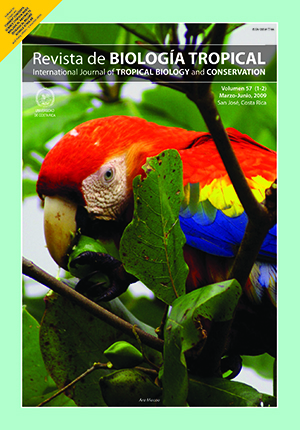Abstract
The effect of human development on six diurnal mammal species was studied using transects in the Punta Leona Private Wildlife Refuge, Puntarenas, Costa Rica during the dry season months of March and April 2006. Individuals/km was recorded for each species in more developed (MD) (near paved roads, buildings, construction, or deforested trees) and less developed areas (LD) (secondary forest). The white-faced capuchin monkey (Cebus capucinus) (n = 233), coatimundi (Nasua narica) (n = 46), and Central American spider monkey (Ateles geoffroyi) (n = 36) demonstrated a preference for less-developed habitats. The nine-banded armadillo (Dasypus novemcinctus) (n = 4), tamandua (Tamandua mexicana) (n = 2) and variegated squirrel (Sciurus variegatoides) (n = 5) were observed infrequently. White-faced monkeys avoided construction areas, but received artificial food daily in developed areas. Coatimundis also received artificial foods daily and showed aggression towards guests.##plugins.facebook.comentarios##

This work is licensed under a Creative Commons Attribution 4.0 International License.
Copyright (c) 2009 Revista de Biología Tropical
Downloads
Download data is not yet available.






